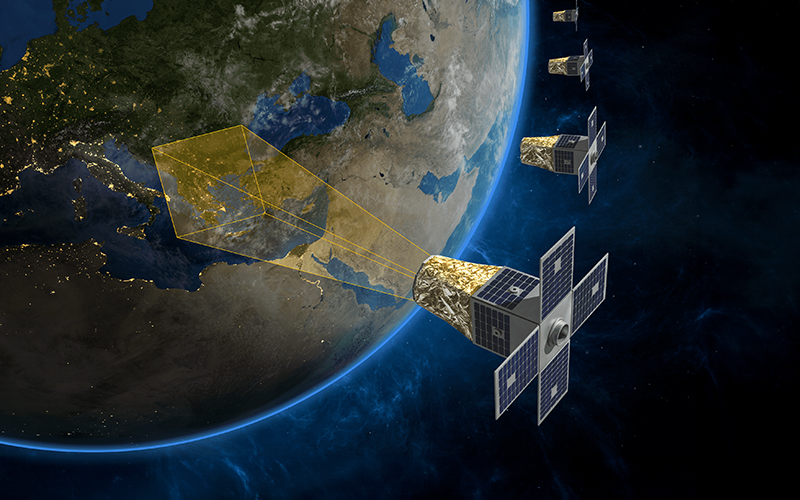
The European Space Agency has awarded Open Cosmos a €60 million contract to build and operate an Earth observation constellation for the Greek Government.
Greece initially announced the initiative in September 2021 as part of its national space strategy. The project is being developed in collaboration with the European Space Agency, which has been tasked with managing it, and the European Commission.
Open Cosmos announced on 29 May that it had been awarded the €60 million contract to deploy the seven-satellite constellation. While Open Cosmos is headquartered in the UK, the satellites will be built and operated by Open Cosmos Aegean. This subsidiary of the company was established in February 2024 and will, according to Open Cosmos, “enhance sovereign capabilities in satellite technologies and attract further investment to the country.”
“Greece is making significant steps in space. By investing in both capacity-buying and capacity-building space programs, our aim is to stimulate local high-tech space industries, foster job creation, retain our skilled engineers and space experts in the country, and attract additional talent,” Minister of Digital Governance Dimitris Papastergiou said in a statement.
The seven satellites being built by Open Cosmos will be equipped with very-high-resolution optical multispectral and hyperspectral cameras in addition to an Internet-of-Things (IoT) payload and Automatic Identification System (AIS) receivers. The data collected will be used to improve public services such as land registry, combating sea pollution, and increasing agricultural efficiency. It will also complement existing systems, such as the EU’s Copernicus, and be fully compatible with the Atlantic Constellation.

